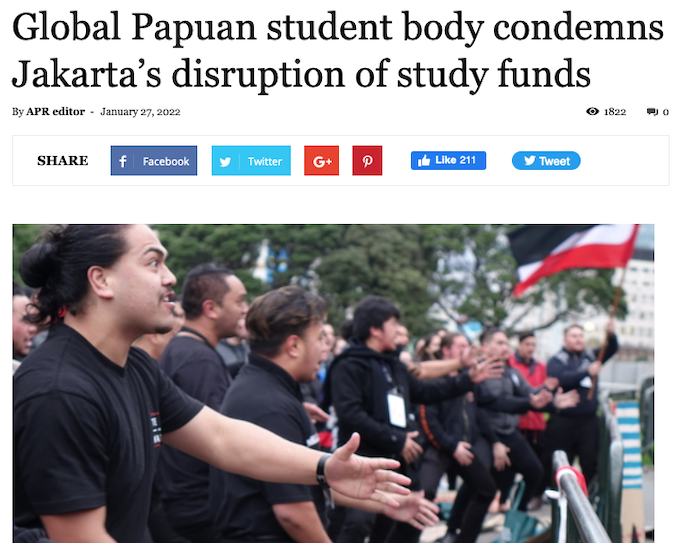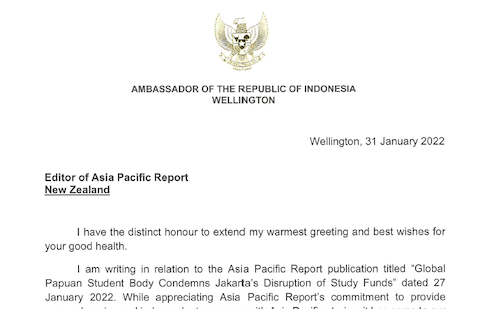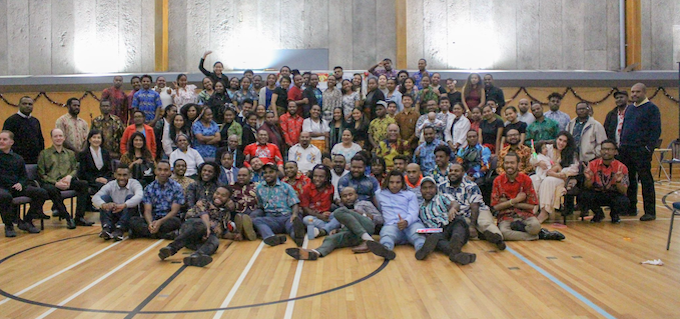
Asia Pacific Report newsdesk
The Indonesian government has denied claims by an umbrella group representing Papuan students on scholarships abroad that it is “assassinating” the provincial programme supporting studies in New Zealand and several other countries.
An open letter last week signed by the presidents of the International Alliance of Papuan Student Associations Overseas (IAPSAO) headed “Do not disturb and hinder [us] — leave us [to] study in peace” declared that funding policy changes created under the controversial new autonomy statute would impact on their education.
The IAPSAO open letter was also signed by the presidents of five affiliated Papuan student associations around the world.
- READ MORE: Papuan students abroad ask the Indonesian government to ‘be responsible’ – Tabloid Jubi
- Global Papuan student body condemns Jakarta’s disruption of study funds
- Students reply to embassy and appeal for meeting with president
Student sources said that at least 125 Papuan students — 41 of them studying in New Zealand — had been ordered home under a new policy reallocating education funds.
Some Papuan students studying in Australia, Canada, Germany, Japan, Russia, and the United Sates were also affected, the alliance said.
But the recently appointed Indonesian Ambassador to New Zealand and the Pacific, Fientje Maritje Suebu, said in a letter to Asia Pacific Report today that the repatriation of students was based on a “thorough assessment” begun in 2017 by the provincial government of Papua over their achievements at their respective educational institutions.
“On 5 January 2022, the provincial government of Papua informed the Ministry of Foreign Affairs of the planned repatriation of 98 students – 51 students in the US, 5 students in the Philippines, 3 students in Canada and 39 students in New Zealand,” she said.
593 students on Papua scholarship
The recalled students were part of a total of 593 students receiving the “Papua Autonomy Scholarship”.

The ambassador said the repatriation decision did not impact on students who remained “on-track” with their studies abroad.
The assessment was also conducted to “ensure that other eligible students from Papua province” would have the same opportunity to study.
Ambassador Suebu said there were no budget cuts for Papuan autonomy funds, including for education.
She said the government was “committed to ensuring the fulfilment of the right to education and capacity building for all Indonesian citizens, including through the provision of scholarships to pursue academic degrees overseas”.
She criticised “those elements who shamelessly manipulate the situation of Papuan students abroad for their own deceitful political agenda”.
The ambassador also criticised Asia Pacific Report over publishing the “baseless account” by the students, a criticism rejected by the APR editors who said the news website was one of the very few news portals in New Zealand that consistently gave comprehensive and fair coverage on West Papuan and human rights affairs in the region.
The editors also pointed out that the ambassador failed to acknowledge either the Papuan students’ open letter or their concerns.
The IAPSAO open letter was signed by the presidents of the Papuan Students Association in Oceania, Papuan Students Association in the United States of America and Canada, Papuan Students Association in Russia, Papua Students Association in Germany and the Papua Students Association in Japan.












































